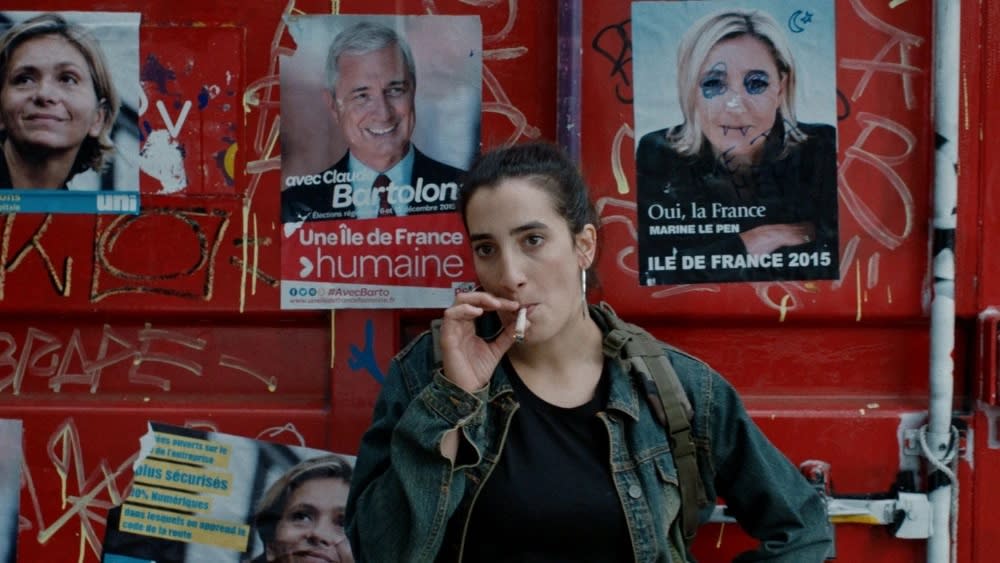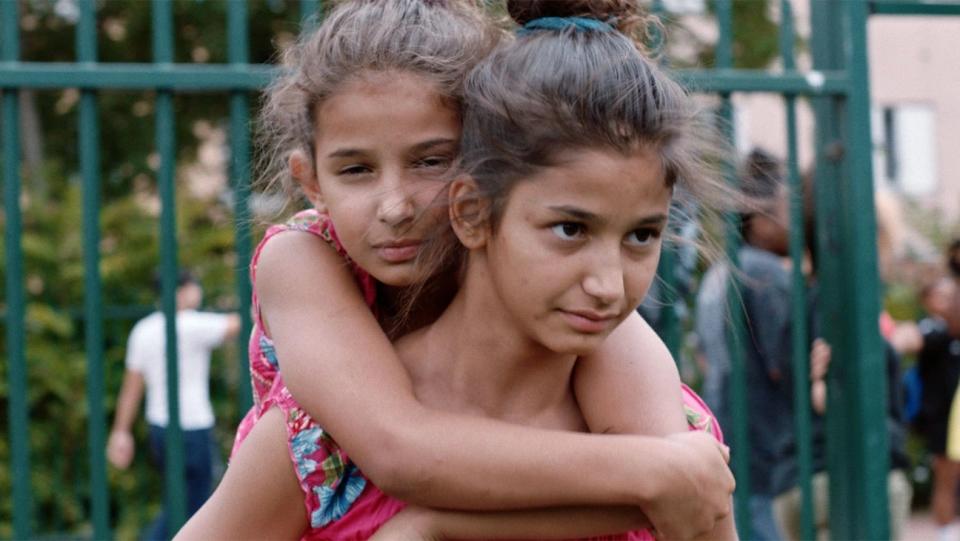‘You Resemble Me’ Review: Dina Amer’s Debut Unpacks the Story of ‘Europe’s First Female Suicide Bomber’

- Oops!Something went wrong.Please try again later.
- Oops!Something went wrong.Please try again later.
Four days after the November 2015 Paris attacks, French police raided an apartment building in the suburban neighborhood of Saint-Denis in search of the mastermind responsible for the bloodshed. He was killed, along with several others — most notably a young woman named Hasna Aït Boulahcen, reported to be Europe’s first suicide bomber. VICE journalist Dina Amer, an Egyptian-American Muslim, was one of the people who reported that news from the scene; when viral cell phone video of the events later revealed that Aït Boulahcen had been a casualty of the explosion and not its cause, Amer became obsessed with learning the truth behind why Aït Boulahcen was in Saint-Denis that night (and also with atoning for the media’s rush to judgment and racist penchant for othering).
Within days of Aït Boulahcen’s death, Amer began recording more than 360 hours of interview footage with the late woman’s family and friends, even tagging along with her mother and sister as they went to the morgue to see her charred remains. That process wasn’t in service to a documentary about Aït Boulahcen’s radicalization but rather to a chimeric hybrid of a film — rooted in fact but refracted through the broken mirror of fiction — that Amer hoped would clarify and complicate its subject at the same time, effectively lifting her veil for a closer look at someone whose lifelong dehumanization began as a little girl and continued after her death.
More from IndieWire
'The Estate' Review: Toni Collette and Anna Faris Flail Through Half-Baked Payday Comedy
'Meet Me in the Bathroom' Review: Scuzzy Rock Doc Strokes Nostalgia for the Indie Aughts
Amer’s fraught but noble intent has resulted in a fraught but noble film; . Neither damning nor exculpatory in its effort to understand how a poor French-Moroccan girl raised without any strong religious orthodoxy wound up being killed alongside the country’s most notorious terrorist, “You Resemble Me” is sympathetic to its subject only so far as it hopes to see her clearly and prevent other people from a similar fate.
And yet, in spite of Amer’s research and her visceral connection to Aït Boulahcen’s story — a connection made distractingly literal by the director’s choice to deep-fake her own face over that of her forceful lead actress, Mouna Soualem, at certain moments — the movie seldom cuts much deeper than the “there but for the grace of god” attitude that might be inferred from its title.
Perhaps that’s why “You Resemble Me” is most arresting in its first half when Hasna is still an unformed little girl. When Keiko Deguchi and Jake Roberts’ renegade editing makes her feel boundless instead of broken, and Omar Mullick’s handheld cinematography makes her feel self-possessed instead of alone. That last bit is particularly important. Although Hasna’s family life is a violent one — her abusive mother’s illness is unspecified, though the film sometimes uses schizophrenia as a convenient shorthand to describe Hasna’s own identity crisis — she has an invaluable ally in her younger sister, Mariam (the two girls are played by real-life siblings Lorenza and Ilonna Grimaudo).
Hasna’s racing thoughts tell her to throw herself over the balcony of their apartment in order to get noticed, but one look at Mariam, who’s wearing the same dress, is enough for her to see herself and feel seen in return. Perhaps the cruelest and most self-loathing moment in a movie with no shortage of them comes when the girls fight after running away from home for the third time: “You’ll never resemble me,” Hasna snipes at her sister.
But when the siblings are separated by the authorities and placed with different foster families, the separation deprives Hasna of the only real home she’s ever had in a country that treats so many of its native-born citizens as if they don’t belong there. “I know who I am,” Hasna tells herself in the bathroom mirror of her affluent white foster parents’ while hiding from the ham she’s expected to eat at Christmas dinner, but we’re skeptical that she’ll remember. Soon after the action jumps forward to 2015 and reintroduces Hasna as a (seemingly reluctant) drug dealer and sex worker, one of her clients tells her that she has “the face of a whore.” After a brief protest, she blows the guy anyway, as if giving in to those words instead of a more convincing response.
It’s not for lack of trying to find one. Less heedless but more scattershot than its first part, the back half of Amer’s movie finds Hasna searching for a different self-image. She’s often seen wearing the cowboy hat she had as a child (a sartorial choice that led people to refer to the real Aït Boulahcen as “the cowgirl of the ‘hood”) and feels so determined to protect people — in the ways that she wasn’t able to protect her sister — that she even tries to enlist in the French military, swearing that she’d give her life to save another’s.

Alas, the military doesn’t want it. The only person who seems to value Hasna is the cousin with whom she reconnects over Facebook after the news reports that he’s joined ISIS in Syria. The next thing we know, Hasna is wearing a Niqāb in her friend’s living room with an ease that makes the garment seem to reveal her rather than cover her up. While Amer otherwise races through Hasna’s radicalization, this scene marks the rare moment when “You Resemble Me” slows down long enough to prioritize the texture of Hasna’s self-image over the trajectory of its dissolution. Soualem makes the most of it by reveling in Hasna’s new sense of wholeness with a palpable warmth, which allows the character’s experience to feel endlessly relatable in spite of its underlying extremism.
Hasna’s peace of mind is so complete that it causes the film around her to become more content and conventional for a brief period — to lose the identity that it’s created for itself — only for the reality of her death to then destroy the fabric of Amer’s fiction altogether as “You Resemble Me” crumbles towards documentary during its final stretch. The television news footage we see captures the rush to name Aït Boulahcen as “Europe’s First Female Suicide Bomber” and underlines why Amer was so compelled to set the record straight. Aït Boulahcen’s death wasn’t a suicide at all, but rather an execution by a thousand cuts; if only this film rendered Aït Boulahcen as lucidly as it does what killed her.
“You Resemble Me” suggests that Aït Boulahcen is at once both indivisibly human and impossibly complex, but its hopscotch approach to her biography grows too prescriptive for the film’s mysteries to survive. Amer is so eager to see her own reflection in Aït Boulahcen’s story that she loses sight of anything that might fall outside of that overlap. By the time it’s over, this film resembles her a bit more than it should.
Grade: C+
Vice Studios will release “You Resemble Me” at NYC’s Angelika Film Center on Friday, November 4. It will open in L.A. on Friday, November 11, with a national rollout to follow.
Best of IndieWire
Sign up for Indiewire's Newsletter. For the latest news, follow us on Facebook, Twitter, and Instagram.

